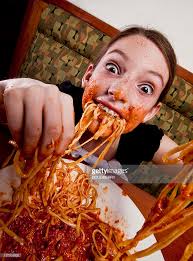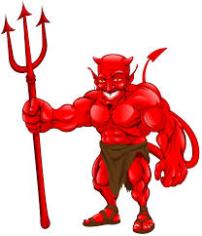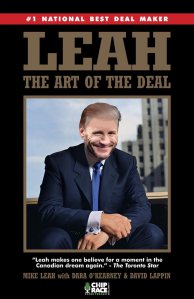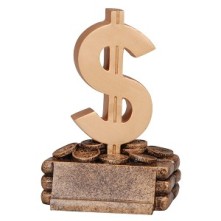
I’ve never subscribed to the increasingly popular notion that poker is a sport. An exercise in mental gymnastics it may be, but it fails to meet a simple benchmark which, in my view, is the best way to identify the difference between a sport and a game. Namely, do you need to change your shoes to be competitive? As only a total lunatic would change their shoes at the start of play, poker falls neatly alongside snooker and darts on a list of games that are fiercely competitive but can’t really be considered to be sports. If this shoe test were applied strictly, I’d admittedly have to classify gardening, deep sea diving and being a circus clown as sports but I’m personally confident that the Grade Three Flower Squirting and Confetti Bucket International Clowning Handicap is a contest that will soon be adored by millions.
While poker may not be a sport as such, the importance of preparation for events in as meticulous a fashion as a sportsperson is now widely recognised. One of the principle areas of focus is diet. A healthy overall lifestyle needs to be honed in to finer detail when preparing for big events. Live tournaments in particular are long, testing affairs and your mind and body need to be tuned to make optimal decisions throughout the day. This usually means eating a light meal before the start of play and snacking on fruit or nuts throughout the day to keep the energy levels constant. If, as an entirely random example, you find yourself dragging yourself out of bed and sprinting through town to make the beginning of day two because you and your Dutch friend went for a quick wind-down beer at the end of day one and ended up in a Techno club until five in the morning then you’ve probably erred in your preparation and ought to reconsider your schedule.

You may be tempted to save time by ordering food during the tournament rather than arranging it earlier. This is a mistake. It’s easier for a rich man to get through the eye of a needle than it is for a poker player to order food in a casino. At the beginning of play you’ll see a steady stream of waiting staff taking orders but as soon as the pang of hunger hits your belly they all beat a hasty retreat to the kitchen. Every few minutes you’ll see somebody emerge with food and drink but it’s a stone cold certainty that they will be for people at a table at the opposite side of the card room to where you’re sitting. Just occasionally, a member of staff on an errand will tease you by ghosting past your table to speak to somebody else in the room then returning the same way without once acknowledging your desperate attempts to catch their attention.
Desperation begins to set in. The deep rumbles of the stomach become painful and you begin to feel somewhat light-headed. Eventually you find yourself faced with a choice of leaving the casino to find some food or praying that somebody takes your order before you whither away to nothing. As it would be a dreadful shame to skip a few hands, the inevitable decision is to risk possible death by starvation rather than miss out on any profitable spots that may arise.
The earth turns, aeons pass and civilisations crumble but, at last, a smiling face drifts to your table to take your order. Unfortunately she’s only taking drinks orders but she promises to alert one of her colleagues and they’ll be along as quickly as possible. After waiting for what could be anywhere between six more minutes or fifteen years you finally get to place a food order. The timescale may be uncertain but it’s usually just before the hallucinations begin but after you’ve given serious consideration about whether you’ve left paperwork in order for your family and what people will say about you after you inevitably die.

You order a burger. You must always order a burger when you’re playing poker because the menu leaves you no choice. Every other item is either very messy or coated in sticky sauce, meaning that any choice but a burger will result in messy fingers, messy cards and messy chips, and everybody will hate you. Never mind that the person directly opposite you currently has their face buried into a plate of barbecue chicken wings or that not so long ago the person to your left was slurping a noodle soup, leaving 38% of its contents splashed all over your face and nice new shirt. As a conscientious type, you opt for the burger as it will do the least damage.
There are a few things you can absolutely guarantee at the poker table. For example, you open with kings and there will be an ace on the flop. Or a pair of jacks will only ever win when it’s not supposed to. Another under-acknowledged certainty in a live tournament is that the second your food order has disappeared into the kitchen the Tournament Director will suddenly appear to tell you that your table is breaking and that your new seat is absolutely nowhere near where you’ve just been sitting, quite possibly on a different floor or even an out-building that you don’t remember seeing on your previous eight visits to the casino.

If you’re fortunate enough to have a sight-line then at least you can pretend to yourself that you’ll see the food coming out of the kitchen and can attract the attention of whomever is carrying it. In reality the food will come through the door at exactly the point when you’re facing a difficult decision on the turn in the first hand of any note you’ve played in well over an hour. Your burger will do several laps of the poker room before – and kudos to casino staff who must have to do this frequently – miraculously finding its way to your table several minutes later. You hand over an inordinately large amount of money and thank the staff member and all the gods you can think of for bringing you sustenance before you finally perish.
The first bite is the worst. The second bite is the worst as well. Don’t even get me started on the third bite. At a functional level a burger is a just lump of beef and herbs held together by egg, cooked on a grill and clapped into a bun, maybe with some cheese, relish and a gherkin. It’s very difficult to do badly but casinos, in the UK at least, seem to have made food into a demonic culinary art form. The burger on the plate in front of you is a cheese topped existential crisis. An anguish patty. A McTorment.

I recall ordering a burger at a tournament in Newcastle and biting into a bun apparently made from balsa wood. The burger had the flavour and consistency of Blu-Tak mashed into cardboard and bound together by the arse-juice of Satan himself. That burger was a truly low point in my life and I still often scream in my sleep at the very thought of it, yet I was so unbearably hungry that I instinctively devoured the lot, my soul being ripped asunder with each dreadful bite, my very being longing for the sweet embrace of death rather than continue the consumption of this monstrous entity. It was served with chips. They were okay.
The burger will keep your hunger at bay until the end of the day’s play (or, more likely, until you bust the tournament at 3.45am with 17 minutes left to play). The sense of ennui remains deep within you but at least you don’t expect to starve to death this time, or at least that’s what you think until you step outside into the world and you realise that your body clock is now completely bollocksed and you really need to eat again, except it’s the middle of the night and the widest options available are another burger from Burger King, a box of unidentifiable battered shapes from a Chicken Cottage/Shed/Outhouse or the Salmonella Special at Kebab-o-Rama. Whatever you choose you regret the second you put your exhausted head on the pillow and attempt to get a night’s sleep, knowing that your stomach is going to protest violently against your terrible life choices for several hours.
There is a moral to this story; valuable experience to be drawn on and a lesson to be learned about the importance of eating properly at poker tournaments. If you find out what it is can you please let me know as I obviously can’t get it right, however hard I try. If you can’t work it out either then I’ll see you for Vodka Red Bulls in the Techno club next time around.




